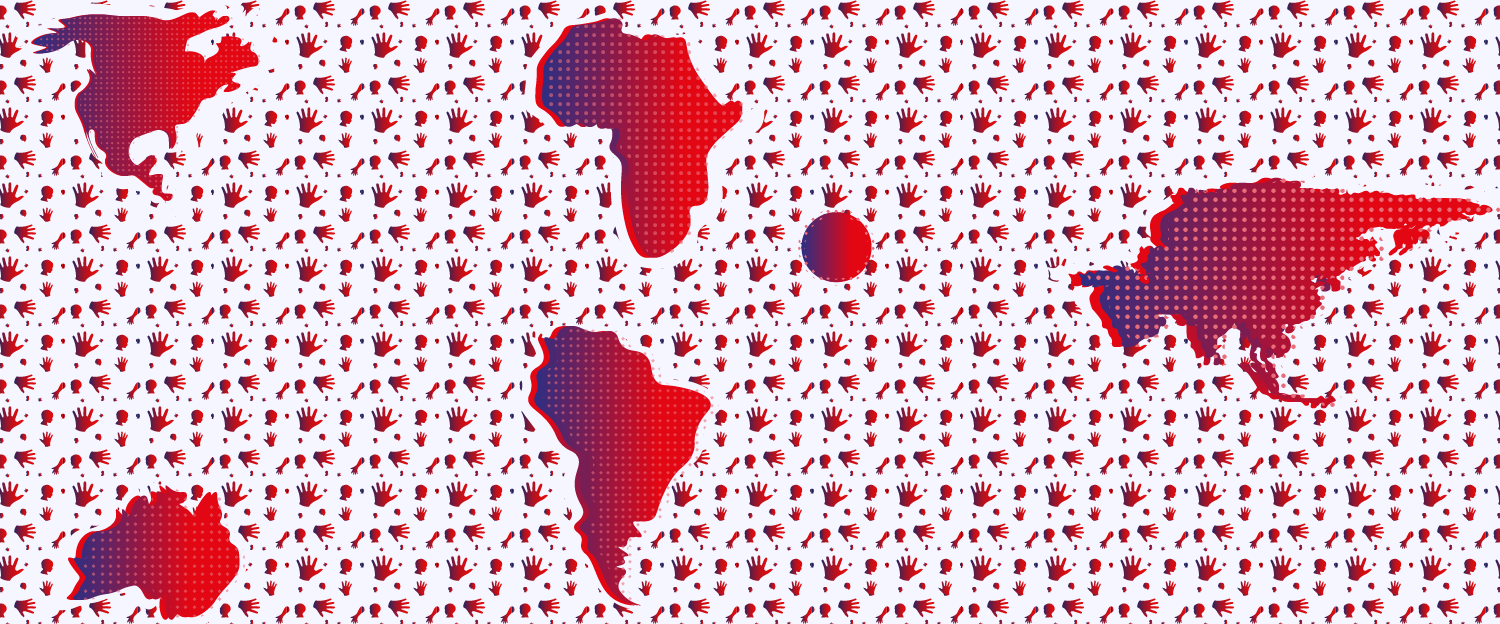As part of The Open University’s events marking Black History Month, I was invited to give a presentation on the connection between the management curriculum and our colonial heritage. In particular, I tried to problematise the ways in which a ‘Western-centric’ and stereotypical idea of culture is taught in mainstream management curriculum. I tried, furthermore, to underline potential ways to decolonise the latter. Watch the presentation below.
There is an increasing awareness in public debate about the need to combat racism and ensure inclusion for minorities in order to bring about an authentic democracy. Celebrating Black History Month is one way to contribute to this. However, there is still some reluctance to acknowledge the profound link between our colonial legacy and the way that racism works. Because of this, what has been called a ‘decolonial turn’ (e.g. Maldonado-Torres, 2017) is needed in order to really combat racial discrimination. In Summer 2020, the connection between colonial history and racism was underlined in Bristol, when campaigners for racial equality toppled the statue of Edward Colston, who had been involved in the slave trade in the seventeenth and eighteenth centuries (Barthold et al., 2020).
 The empty statue pillar stand of Edward Colston that was removed during a Black Lives Matter Protest in Bristol, 2020
The empty statue pillar stand of Edward Colston that was removed during a Black Lives Matter Protest in Bristol, 2020
coloniality has survived decolonisation and still informs today's globalised worldIn fact, modern racial categories and the racial domination associated with them did not exist prior to the violent colonial encounter between ‘the West and the rest’ (Hall, 1992). Writing in 2000, the influential Peruvian sociologist Aníbal Quijano coined the concept of ‘coloniality of power’ in order to convey the idea that the empire building allowed Western countries to create long-lasting asymmetries of power over the rest of the world based on the idea that European cultures and races were inherently superior to non-European ones. Additionally, coloniality (the cultural assumptions stemming from colonialism) takes such assumptions of Western superiority as a hegemonic ‘model of power’ (p. 533) which is normalised and institutionalised through all aspects of society, not just as a matter of Western control over particular overseas territories. Thus, by coloniality Quijano emphasises that colonialism is not only about territorial control but also about the transformation of culture and the effective subjection of colonised people into accepting and internalising the so-called superiority of Western thinking. Another aspect is that coloniality has survived decolonisation and still informs today’s globalised world, for example from the perspective of its economic organisation and division of labour:
What is termed globalization is the culmination of a process that began with the constitution of America and colonial/modern Eurocentered capitalism as a new global power. One of the fundamental axes of this model of power is the social classification of the world’s population around the idea of race, a mental construction that expresses the basic experience of colonial domination and pervades the more important dimensions of global power, including its specific rationality: Eurocentrism…. Therefore, the model of power that is globally hegemonic today presupposes an element of coloniality (Quijano, 2000: 536; my emphasis).
Coloniality and the management curriculum
A number of scholars have analysed the effect of coloniality on the management curriculum and the ways in which management is taught across the globe. For example, in analysing the identities of academics working in Indian business schools, Khotiyal and colleagues – who are organisational studies scholars – have argued that the management knowledge that is considered legitimate and high-quality both in the global south and in the global north is based on international journal rankings whereby high-level journals are exclusively based in the US and the UK. This leads business schools and academics outside of the West – for example in India – to reproduce and teach the management knowledge that is produced in the West (Khotiyal et al., 2018). Similarly, business schools in the global south seek to be accredited by Western bodies.
Furthermore, those management concepts that are taught in business schools are often Eurocentric. For example, the notion of national culture as developed by late organisational behaviour scholar Geert Hofstede (1997) is widely taught in business schools in order to analyse the intersection of cultural processes and organisation. According to Hofstede, any particular national culture has its own specific fixed traits – which can be quantified as variables. This notion of cultural traits as fixed and unchanging effectively reproduces colonial stereotypes (Fougère and Moulettes, 2007). Moreover, the concept of national cultures – particularly the way they insist on an exclusive combination of state, people and language – is linked to the historical development of European nation states in the eighteenth century (Grosfoguel, 2011). Hofstede’s attempt to export this essentially European idea to other contexts is deeply Eurocentric and gets in the way of understanding how alternative cultural formations might work in practice elsewhere. Finally, the management curriculum is embedded in coloniality by silencing the voices of colonised people. For example, the fact that a significant number of organisations rely on racialised precarious work – typically in low-pay, low-skill services such as cleaning – is simply not mentioned most of the time in management teaching.
As a result, the time has come to reflect on the current management curriculum we teach, and what strategies might enable us to decolonise it.




Rate and Review
Rate this video
Review this video
Log into OpenLearn to leave reviews and join in the conversation.
Video reviews